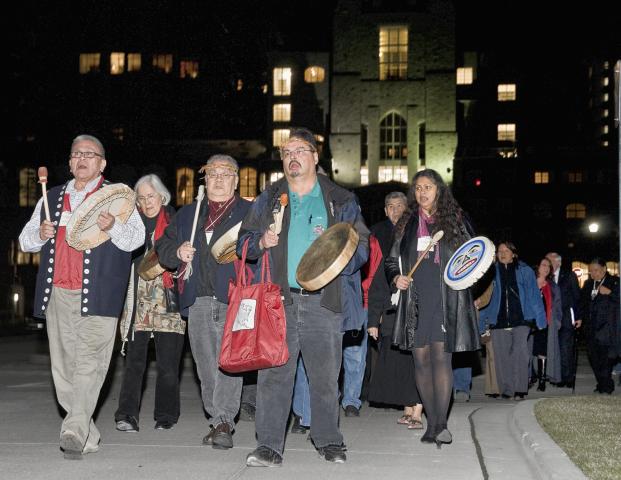What paths do we need to travel backwards along in order to learn truths that will help us move forward?

Last week, I wrote about truth-telling and took a walk back along some of the key moments of my recent truth-journey in relation to the legacy of residential schools. I mentioned that in conversation with a colleague I spoke about how there are other truths we need to know as Indigenous and non-Indigenous peoples journey forward.
What are these other truths that we need to know? What paths do we need to travel backwards along in order to learn truths that will help us move forward? Truths about other aspects of our shared history and about what it’s like to live as an Indigenous person in Canada today. Top of mind may be the increasing number of stories in the news about missing and murdered Indigenous women and girls and the related public inquiry. The inquiry itself has been challenged to respond to the many voices who want it to succeed but have concerns. I think as we watch these struggles play out publicly, we are learning some truths about the challenge of imagining new ways to work together in healthy and respectful ways. This challenge is especially acute when there is pressure to move forward to address real problems quickly. As the inquiry does it work, hard truths will be revealed and shared about what the families of these women and girls have faced in seeking to find out what happened to their loved ones and to seek justice. We will have difficult truths to confront about how they have been treated.
We have more to truths to learn about the struggles faced by Indigenous young people in many parts of Canada, struggles that break our hearts as we read about youth suicides and the loss of other young Indigenous people who have left their home communities to be educated in places like Thunder Bay. We read and hear truths about Indigenous adoptions, the consequences of the 60s scoop.
I could continue adding to this list but I’m also conscious that the truth walk can feel like a heavy walk if we are not also attentive to remembering the good steps that have been made along the walk for reconciliation. I have been inspired by and draw hope from the many, many activities I have read about since the TRC wrapped up its work two years ago, across all sectors of society. Indigenous leaders at national, regional and local levels in all walks of life continue to exercise imagination and innovation to tell their truths, to support healing, and to advance reconciliation. More and more community groups, museums, hospitals, sports teams, universities, school boards, city councils, and churches have launched reconciliation initiatives, come up with reconciliation action plans, taken steps to make their programs and activities more welcoming to Indigenous peoples and more sensitive to Indigenous cultures, languages, and protocols. In other words, we are making progress. We are moving forward. The walk backwards to the truth is helping us walk forwards in creative and healthy ways.
It is an exciting and hopeful time. I believe that as we continue our truth walks and walks for reconciliation it is the Creator who is inviting us to apply our good minds, good hearts, and good spirits to the journey. Further, as we move forward, I believe we will see each other more fully and more clearly and in doing so see God more fully and more clearly. The journey is one which is filled with the rich gifts of the many, many other peoples we will encounter. Our truth walks ultimately will help us discover more truths about how we are all related to one and other, to the land we share, and to our common Creator.
—Lori Ransom was recently appointed as a Reconciliation and Indigenous Justice Animator, Aboriginal Ministries Circle, The United Church of Canada.